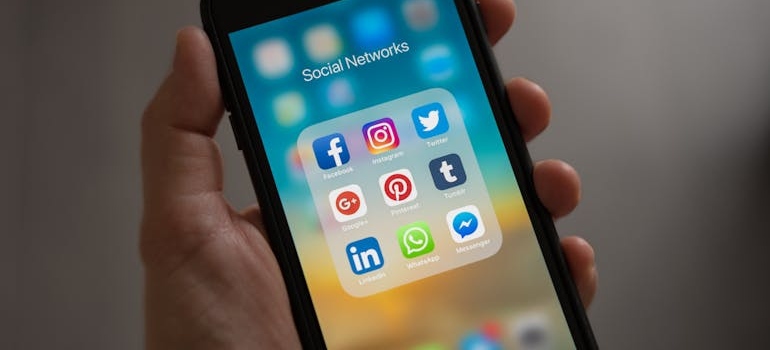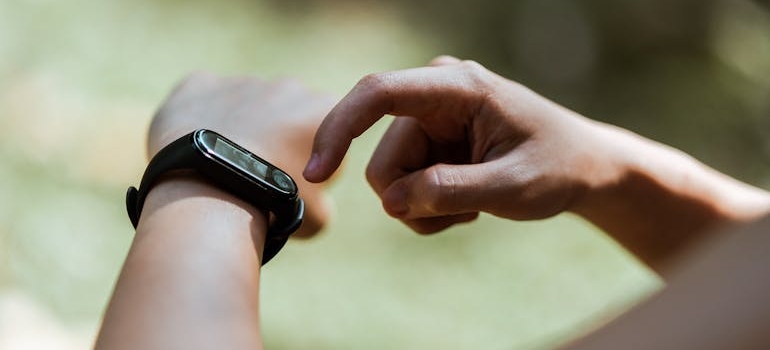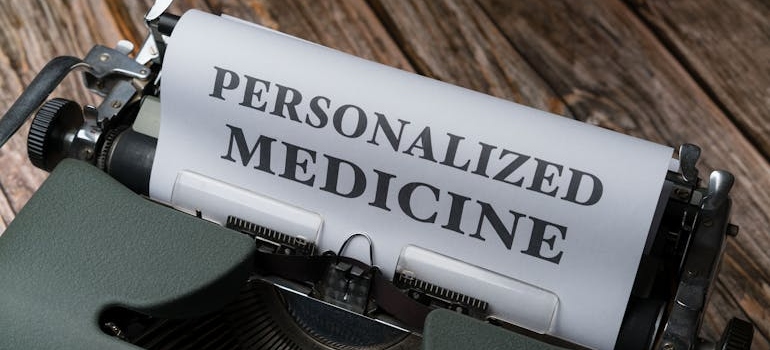Are you or someone you know struggling with addiction? It’s tough, but you’re not alone. Technology is transforming how support and treatment are delivered, making recovery more accessible. Through telemedicine, mobile apps, and even virtual reality, technology can help addiction treatment reach more people, including in remote areas or for those seeking help discreetly. This article explores how these innovations are making a real difference, particularly focusing on rehabs in WV, where access to treatment is really important. Stay with us to discover how technology might offer the tools and support needed for a successful journey to recovery.
How Can Telemedicine Expand Access to Addiction Treatment?
Struggling with addiction can feel isolating, especially in remote areas. Telemedicine and virtual counseling are changing that. These platforms bring professional help directly to you, no matter where you live. You can connect with therapists and counselors from your home, which is crucial when mobility is limited. It’s convenient and private, removing some of the barriers to seeking help.

This is one way technology can help addiction treatment become more accessible and effective. You deserve support, and with telemedicine, it’s now within reach. Whether you’re in a rural area or just prefer the privacy of your own space, virtual counseling offers a flexible solution to get the help you need.
Discover How Mobile Apps Can Support Your Recovery Journey
Mobile apps are revolutionizing the way we approach addiction recovery, offering practical support right at your fingertips. These apps are designed to empower you with tools that fit into your daily life, helping you maintain your sobriety and reach out for support when needed. Here are some key features you can find in these apps:
- Sobriety trackers: Keep a daily log of your sobriety journey and celebrate milestones.
- Craving management: Get tips and tools to handle cravings as they come.
- Support groups: Connect with others who are facing similar challenges and share experiences.
- Motivational Messages: Benefit from daily affirmations and encouragement, including techniques from motivational interviewing for substance abuse to keep you focused on recovery.
Learn How Virtual Reality Offers Immersive Therapy for Recovery
Virtual reality (VR) therapy is transforming addiction treatment, providing a cutting-edge way to support recovery. This technology enables exposure therapy for relapse prevention, allowing individuals to face challenging situations in a safe, controlled virtual environment. Imagine practicing refusal skills in a simulated social setting or confronting triggers without real-world risks. VR also offers immersive relaxation exercises, transporting you to tranquil settings that help manage stress and anxiety.
Additionally, skills training simulations through VR help build and reinforce coping strategies in real-life scenarios. This isn’t just advanced technology; it’s a personalized approach in individual therapy for addiction, designed to meet specific recovery needs, making the journey towards sobriety more engaging and effective.

Explore the Role of AI in Optimizing Addiction Recovery
Artificial Intelligence (AI) is reshaping addiction recovery, making it more personalized and effective. AI algorithms sift through heaps of patient data to craft treatment plans that address your specific needs. These aren’t just about predicting when you might face challenges or adjusting your meds—AI goes further by incorporating holistic therapy for addiction.
This means your treatment could include therapies like yoga, meditation, or nutritional counseling, tailored just for you. It’s all about enhancing your recovery journey, ensuring every aspect of your health is considered. Technology can help addiction treatment become more than a routine—it turns it into a personalized path to wellness. Embrace AI’s power to transform the traditional approach and offer you a recovery plan that truly fits.
Discover Digital Therapeutic Tools for Addiction Support
Digital therapeutic tools are making a big difference in addiction recovery. Cognitive behavioral therapy (CBT) apps, mindfulness meditation programs, and biofeedback devices offer practical, easy-to-use support. These tools are especially helpful in drug rehab for young adults. They provide age-appropriate strategies that resonate with younger people, making the recovery process more engaging and relatable.
CBT apps help change negative thought patterns, mindfulness programs reduce stress, and biofeedback devices give real-time insights into physical responses. When these tools are part of a recovery plan, they offer valuable support that fits into daily life. Technology can help addiction treatment be more effective and accessible, especially for young adults looking for relatable and modern solutions in their journey to sobriety.
How Online Forums and Social Media Groups Foster Addiction Recovery
Online support communities are a vital part of addiction recovery. Platforms like forums and social media groups offer a space where people can find peer support and share valuable resources. These digital spaces are especially helpful for discussing family therapy for addiction. They allow you to connect with others who understand your struggles and provide insights into involving your family in your recovery.
When technology can help addiction treatment by connecting you with support networks and sharing crucial information, it becomes a powerful tool in your journey. Whether you’re seeking advice or just a supportive ear, these online communities foster a sense of belonging and help build a solid support system around you and your loved ones.

Why Integrating Addiction Records into EHR Systems Benefits Patients
Integrating addiction treatment records into electronic health records (EHR) systems offers many benefits. When your treatment details are part of your EHR, your healthcare providers can see a complete picture of your health history. This improves coordination of care, making sure everyone is on the same page and your treatment is seamless. It helps in creating better treatment plans and tracking progress more efficiently.
For those in drug rehab WV, this means faster, more personalized care. EHR integration reduces the chances of errors and ensures that every aspect of your health is considered. This technology can help addiction treatment be more effective, giving you the support you need for a successful recovery. It’s about making sure you get the best care possible at every step of your journey.
Can Wearable Technology Improve Addiction Recovery Outcomes?
Wearable devices and remote monitoring technologies are transforming addiction recovery. These tools track important physiological indicators like heart rate variability, sleep patterns, and stress levels. This real-time data helps you and your healthcare team see how your body is responding to treatment. It’s like having a constant check-in on your progress. You can catch potential issues early and make adjustments as needed.
Technology can help addiction treatment by providing these insights, making recovery more personalized and effective. Imagine knowing exactly how your body is doing and getting the support you need right when you need it. These tools are a game-changer, helping you stay on track and feel more in control of your recovery journey.

How Gamification Engages Patients in Their Recovery Journey
Gamification is making recovery more engaging and fun. It uses reward systems and interactive challenges to motivate you on your recovery journey. Imagine earning points or badges for completing therapy sessions or staying sober for a certain number of days. These small rewards can boost your motivation and make the process feel more like a game than a chore.
Interactive challenges can help you build new skills and reinforce positive behaviors. This approach keeps you involved and committed to your treatment plan. It’s a practical way to make the tough journey of recovery a bit easier and more enjoyable. Using gamification in recovery programs helps you stay focused and makes achieving your goals more rewarding.
Ethical Considerations of Using Technology in Addiction Treatment
There are many ethical considerations in using technology for addiction treatment. We’ll cover:
- Patient privacy
- Data security
- Equitable access
Each of these topics impacts how effective and safe your treatment can be. It’s important to understand these issues to make informed decisions about your recovery journey. Let’s explore how these factors can affect your treatment and what you should look out for.
Ensuring Patient Privacy in Digital Addiction Treatment
Your privacy matters, especially when seeking help for addiction. Digital addiction treatment must prioritize keeping your personal information safe. This includes your therapy sessions, medical history, and any data you share online. Make sure the platforms you use follow strict privacy laws and guidelines. They should offer secure communication channels, like encrypted video calls and protected messaging.
Always check if they have clear privacy policies. Knowing that your information is safe allows you to focus fully on your recovery. Don’t hesitate to ask your provider about their privacy practices. Your comfort and trust are crucial in your journey to sobriety. Protecting your privacy is not just a policy; it’s a promise to keep you safe.
Data Security in Addiction Treatment Technology
Your data security is vital when using digital tools for addiction recovery. Sharing sensitive information, like personal details and health data, requires robust protection. Choose platforms with strong security measures, including encryption and regular updates.
Compliance with health data regulations is non-negotiable. Secure systems prevent unauthorized access and data breaches, giving you peace of mind. It’s important to ask your provider about their security practices. Your safety and privacy are paramount, and trusting in secure technology makes your recovery journey smoother. Effective treatment depends on this trust.

Fair Access to Tech-Based Recovery Tools
Everyone deserves the chance to recover, but not everyone has equal access to technology. Tech-based recovery tools can bridge gaps, yet fair access remains a challenge. Not all individuals have smartphones or reliable internet. Programs need to address these disparities by offering support through various channels, like phone calls or in-person visits.
Some even provide devices or internet access. Making technology-based tools available to all ensures that everyone can get the help they need. Your recovery should not depend on tech availability. Equal access to treatment tools is essential for a fair chance at a healthier life.
Is Technology a Cost-Effective Solution for Addiction Treatment?
Technology-driven approaches can make addiction treatment more affordable and efficient. Using telemedicine and mobile apps reduces the need for expensive in-person visits, cutting costs significantly. These tools also streamline healthcare delivery, making it faster and more organized. Imagine getting the help you need without the extra expenses and hassle.
Insurance options, like Humana rehab coverage, can make these technologies even more accessible. This means more people can get effective treatment without breaking the bank. It’s about finding smart solutions to make recovery possible for everyone. With the right technology, you can get the support you need in a cost-effective way. Recovery doesn’t have to be a financial burden. Embrace these tools and take a step toward a healthier future.
What Are the Future Trends in Technology-Based Addiction Treatment?
The future of addiction treatment is exciting, with new technologies paving the way for more effective and personalized care. Here’s what’s on the horizon:
- Personalized medicine: Tailoring treatment to your genetic makeup to enhance effectiveness.
- AI-driven therapies: Using artificial intelligence to analyze data and predict the best treatment paths.
- Genomics in research: Integrating genetic insights to understand addiction better and develop new treatments.

These innovations promise to transform recovery processes, making them more targeted and efficient. Imagine a treatment plan designed just for you, backed by cutting-edge science. This is not just hopeful thinking; it’s the future we’re stepping into. Embrace these advancements; they could revolutionize how we tackle addiction and support those in need.
Take the Next Step with Digital Support Tools
Finding the right support for addiction can be tough, but you’re not alone. Technology can help addiction treatment become more accessible and effective. Telemedicine, mobile apps, and other digital tools are here to make recovery easier. They offer new ways to connect with support, track progress, and stay motivated. If you or a loved one are looking for help, consider these options. They can provide the assistance needed, no matter where you are. Seeking help is a brave step, and using technology can make this journey more manageable. Explore these tools and find what works best for you. Recovery is possible, and you have the support you need to succeed.



